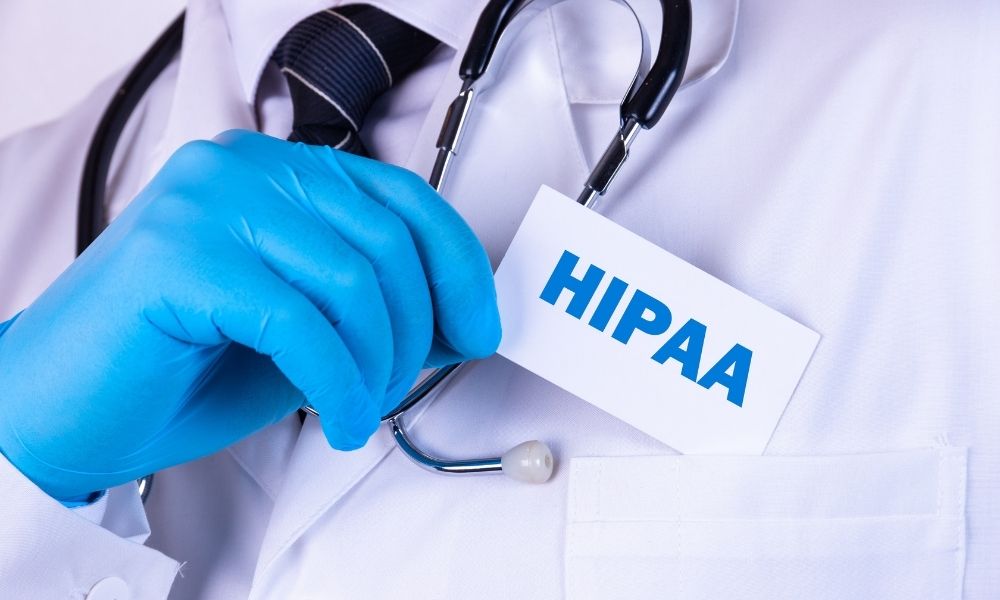In the era of technology that is digital, security of sensitive information has become a top priority for organizations across all industries. Health Insurance Portability and Accountability Act, or HIPAA is a law that provides guidelines to the healthcare industry to manage, storing, handling and securing protected health information. HIPAA compliance is essential for healthcare institutions to ensure privacy and avoid penalties, as well as maintain an excellent reputation.

HIPAA is applicable to all healthcare providers, healthcare plans, healthcare clearinghouses and business associates. PHI could contain any information that can be used to determine an individual, including names, addresses as well as credit card number. It also includes details regarding medical conditions and procedures. PHI is extremely important in the black market due to its potential to be used in identity fraud.
The HIPAA Privacy rule defines guidelines regarding the use and disclosure of health-related personal information (PHI). The covered organizations must establish policies and procedures that protect the confidentiality, integrity and accessibility of electronic health information (ePHI). These policies should include access control, security incident procedures, security-related training and other measures to protect the privacy of PHI. The covered entities are required to restrict their disclosure and use of PHI to what is required to fulfill the end-goal of the reason they are utilized or disclosed.
The HIPAA Security Rule requires covered entities to safeguard the confidentiality, integrity, and accessibility of ePHI by implementing reasonable and appropriate physical, administrative and technical security measures. These safeguards consist of audit and access controls and integrity controls, transmission safety, and contingency plan. The entities covered by the policy must regularly conduct risk assessments to determine vulnerabilities and then implement mitigation measures.
HIPAA’s Breach Notification Rule requires covered organizations to inform affected persons as well as the Secretary of Health and Human Services, and in certain cases media in the incident of a breach of PHI that is not secure. The Privacy Rule defines a breach as the acquisition, use, or disclosure of PHI not allowed by the Privacy Rules, which interferes with privacy or security. Covered entities must conduct a risk assessment to determine the likelihood that the PHI has been compromised and the consequences due to the breach.
HIPAA compliance requires ongoing training and education of employees to ensure they understand their responsibilities in relation to privacy and security. Risk assessments on a regular basis are conducted for the covered entities to find any vulnerabilities they might have. They must then implement measures to minimize the risk. These measures could include creating security controls and encryption of ePHI or preparing contingency plans to deal with any security incidents that could occur.
In the modern age, technology has had a major impact on all aspects of our lives, not just healthcare. Electronic health records were revolutionary since they enabled healthcare professionals and patients to exchange information effortlessly. This has created serious cybersecurity risks and strict compliance with HIPAA is a must. Patients’ data is sensitive and should be kept in a secure environment in all times. HIPAA has never been more crucial than it is now given the ever-increasing threat of cyberattacks aimed at healthcare providers. HIPAA guarantees confidentiality and security of patient data. This helps build trust between healthcare providers.
HIPAA compliance can help healthcare facilities keep patient privacy secure while maintaining the trust of their patients. HIPAA violations can result in massive fines, lawsuits, and reputational damage. Office for Civil Rights of the Department of Health and Human Services is accountable for the enforcement of HIPAA regulations. They also investigate complaints and perform compliance reviews.
HIPAA compliance in today’s current digital age is vital for healthcare institutions. HIPAA’s regulations give specific guidelines for how to handle, store and protect confidential health information. Health care organizations must have established policies and procedures to ensure compliance to HIPAA regulations. They must be conducting regular risk assessments, and educate and train their employees. As a result healthcare institutions can ensure their trust with patients and avoid legal actions.
For more information, click why is hipaa important